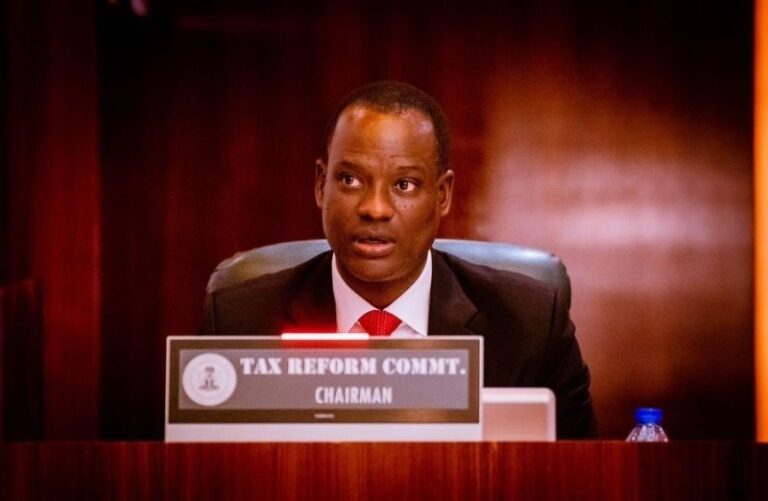By Peter Omopo
Abuja, September 9, 2025 — The Federal Government has defended the proposed 5% fuel surcharge under the newly enacted Nigeria Tax Act, 2025, insisting it is aimed at fixing the country’s dilapidated road network rather than adding to Nigerians’ hardship.
Chairman of the Presidential Committee on Fiscal Policy and Tax Reforms, Taiwo Oyedele, explained the policy while speaking on Channels Television’s Morning Brief on Tuesday. He said the surcharge, which takes effect in January 2026, would create a dedicated fund for road infrastructure across the country.
“I know everybody is concerned about the impact on inflation — I’m concerned myself,” Oyedele said. “But Nigeria has about 200,000 kilometres of roads, and only about 60,000 are in good condition. This is a major reason transporting goods and people is costly and unsafe.”
Labour Threatens Strike
The policy has triggered public anxiety, with the Trade Union Congress threatening a nationwide strike within two weeks if the government fails to scrap the surcharge.
Oyedele acknowledged fears that the levy could worsen inflation but argued that better road infrastructure would help reduce costs in the long run. He cited wide disparities between rural and urban food prices, linking them directly to bad roads and multiple taxes on goods in transit.
“In most countries, the food inflation gap between rural and urban centres is under 1%. In Nigeria, it is sometimes as high as 5%. The majority of the issues are linked to the state of our roads,” he said.
Timing and Safeguards
The tax reform chief stressed that implementation would be carefully timed to minimise its impact on pump prices.
“If the naira appreciates by about 5%, or if crude oil prices drop internationally, the surcharge can be introduced without consumers noticing a change at the pump,” he explained.
He also assured that all funds raised would be ring-fenced and dedicated solely to road rehabilitation.
Learning from Private Sector Model
Oyedele pointed to the success of the Road Infrastructure Tax Credit Scheme — which allows private companies such as Dangote, NLNG, Lafarge, and MTN to build roads in exchange for tax credits — as proof that the model can work.
“There’s nothing stopping us from involving the private sector to ensure this money is efficiently utilised,” he added.
Willingness to Review Policy
The committee chairman urged Nigerians to keep an open mind, saying the surcharge could be reviewed if it fails to achieve its purpose.
“If it can’t work, then the process is there for the National Assembly to remove it from the law,” he said.

